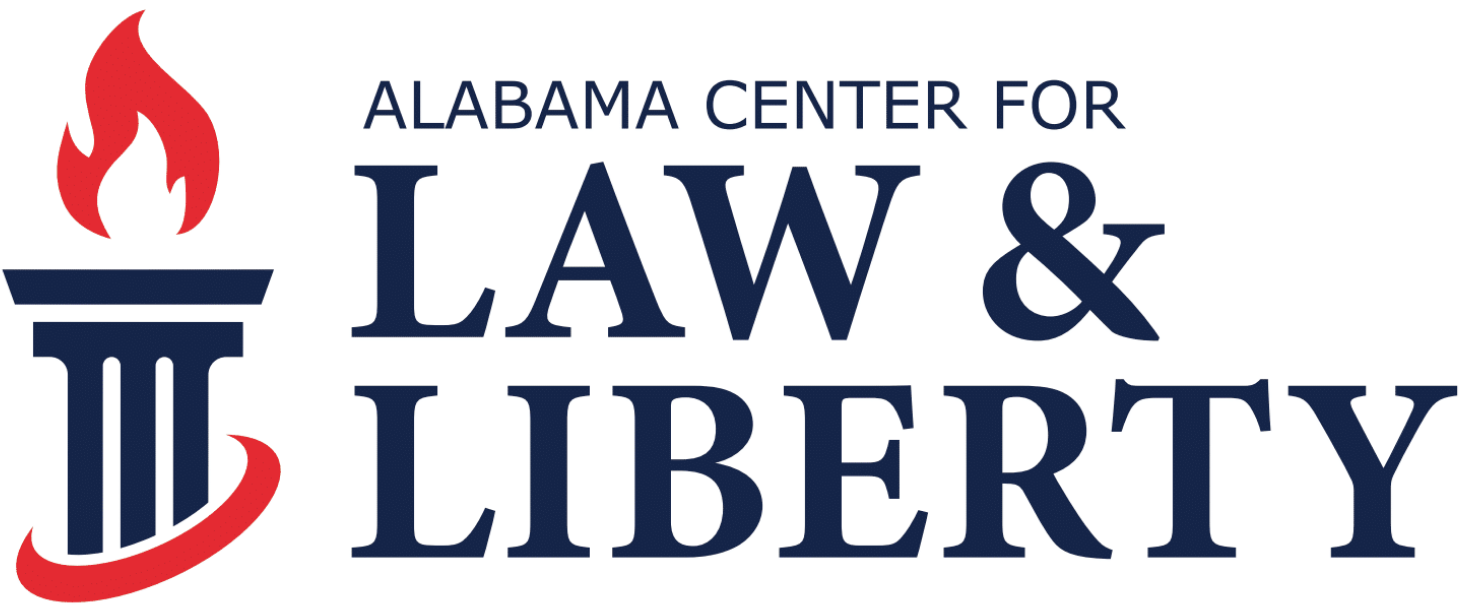
Today, we’ll discuss an important Alabama Supreme Court decision involving the doctrine of state immunity: Ex parte Pinkard.
State immunity is not as well known to the general public as other hot-button issues like the right to life, religious liberty, and the right to bear arms. Nevertheless, it is highly consequential. State immunity means, essentially, that the State cannot be sued except under very limited circumstances.
The doctrine originated with the English common law, which provided, “The king can do no wrong.”[1] The Federalist Papers and the early Supreme Court both speak of America inheriting this doctrine from England.[2] While I hate to question such distinguished statesman as Alexander Hamilton and John Marshall, I must question whether they got this point right. The nature of a republican government seems to me to undermine the rationale for so-called “sovereign” immunity. As argued by James Wilson, another Founder and a Justice of the early Supreme Court, sovereignty in this republic could only be ascribed to the People, not the state.[3]
However even if the doctrine of sovereign immunity were abolished in the courts, the People could enshrine it in law if they so choose. In Alabama, the People first adopted the doctrine of state immunity in the 1875 Constitution. They kept it when they ratified the Constitution of 1901, where it can be found under Article I, Section 14.
Since 1901, the Alabama Supreme Court has done its job and applied Section 14, (regardless of whether it is wise policy or not, which is only for the People to decide). However, it rarely precluded suits against state agents when the suit was brought against them as opposed to against the State. But in 2018, the Alabama Supreme Court decided that any suit against a state agent that was done in the course of his duties was protected by Section 14 immunity.
Enter Pinkard. In this case, the Alabama Supreme Court recognized that its state immunity decisions had been running away since 2018. The court concluded that it was getting out of control and overruled the 2018 decision that started it.
In my view, the court was correct. While Section 14 does provide the government a considerable amount of immunity, it does not protect every action done in the name of the government. The 2018 decision in question presented the danger of letting government agents get away with whatever they wanted as long as they did it in the name of the State.
Two special concurrences are worth noting. First, Chief Justice Parker argued that the root of the problem was a misunderstanding of some language the court started using in the 1940’s, which held that to determine whether Section 14 immunity applied or not, the analysis came down to “the nature of the action and the relief sought.” Chief Justice Parker described this as “unhelpfully nebulous.” He was absolutely right. It’s a pretty ambiguous phrase that the court mistakenly construed in 2018 to mean that government agents can get away with whatever they want. Having identified the problem and corrected it, Chief Justice Parker argued that the court should not repeat its mistake.
Justice Mitchell, who authored the main opinion, also wrote a special concurrence joined by Chief Justice Parker. In this concurrence, Justice Mitchell engaged in a historical analysis of what Section 14 means and where its limits lie. This analysis would have made Clarence Thomas proud, because it looks like a lot of his originalist writings over Supreme Court history. Justice Mitchell’s concurrence helps ground the analysis in something concrete instead of merely the courts confusing (and sometimes self-contradicting) precedents.
These justices also provided an incredibly helpful distinction between state immunity—which is jurisdictional in nature—and state-agent immunity—which is an affirmative defense. The court has inconsistently applied Section 14 immunity to state agents, never giving plaintiffs a chance to prove their case. Observing the distinction helps maximize the opportunity for injured citizens to get justice.
Overall, I think the court made a very good move. It admitted its mistake and corrected it, and two justices made extra efforts to identify the root of the problem and provide a solution. My hope is that Pinkard and the concurrences help steer the ship straight in the future (that is, until the voters eventually repeal Section 14 once and for all).
[1] 1 William Blackstone, Commentaries *238. It has been suggested that this phrase did not mean that the king was immune from suit, but rather that he was duty-bound to remedy any injury he caused. Health Care Auth. for Baptist Health v. Davis, 158 So. 3d 397, 422 n.21 (Ala. 2013) (Moore, C.J., concurring in the result) (citing sources). I would be delighted to see this view prevail, but unfortunately it is not the one the courts favor right now.
[2] See The Federalist No. 81 (Alexander Hamilton); Osborn v. Bank of the United States, 22 U.S. (9 Wheat.) 738, 857 (1824).
[3] Chisholm v. Georgia, 2 U.S. (2 Dall.) 419, 454-57 (1793). The Eleventh Amendment overruled Chisolm, which is perhaps why Justice Wilson’s reasoning has not been found persuasive by many. But still, on its face, the Eleventh Amendment proves only that states are immune from suit by citizens of another state. It does not stand for the proposition that states are immune from suit unless they say otherwise.
